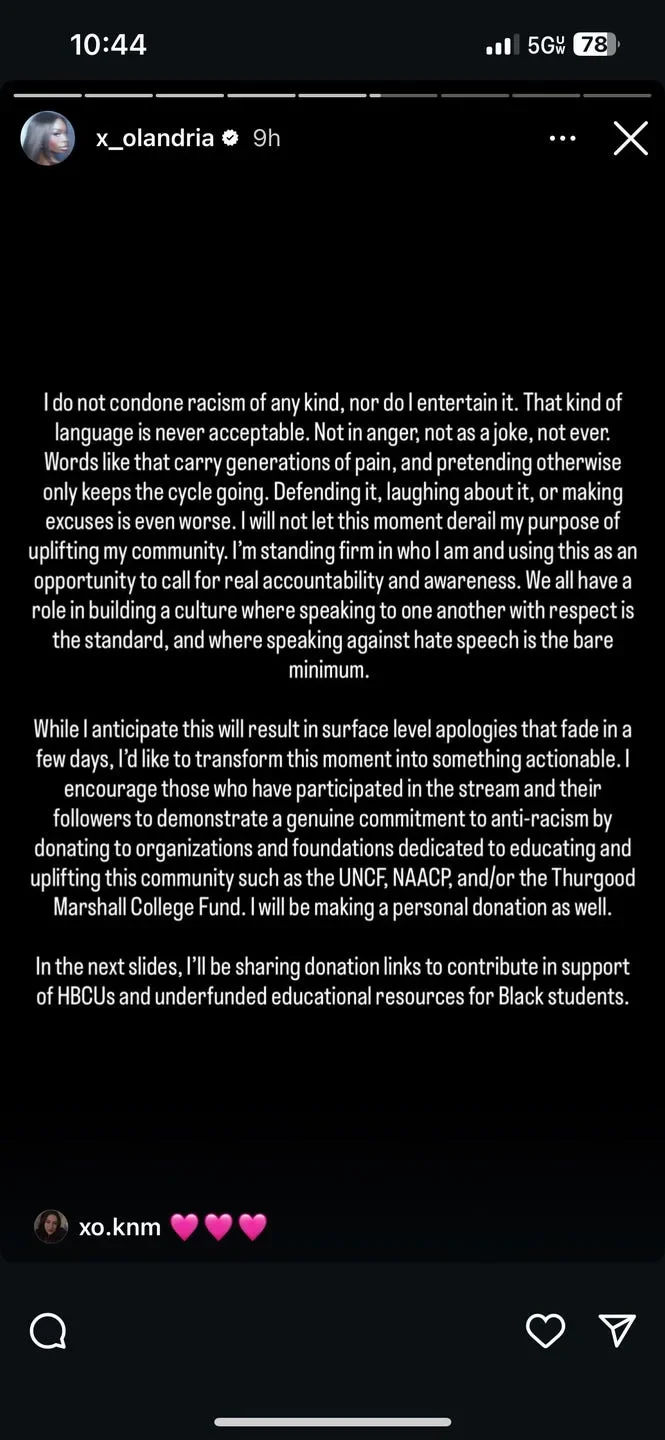Black Women Being Loved Out Loud: A Global Renaissance
“Black Women Being Loved Out Loud: A Global Renaissance” celebrates a cultural awakening where Black women across the world are choosing softness, joy, and self-love without apology. From Megan Thee Stallion’s ‘soft girl era’ to Chanté Joseph’s viral reflections on visibility, this essay explores how Black womanhood is shifting from survival to serenity — proving that being loved, seen, and centered is the most powerful revolution of all.
After the November 2024 election, something shifted. Ninety-two percent of Black women voted for Kamala Harris, but this time the conversation wasn’t about saving democracy. It was about us—about being done with saving everyone else. “Burn the cape” wasn’t a new phrase, but the collective energy behind it was different. For once, most of us were on board with letting the world fend for itself while we poured back into our own.
Across the globe, you could feel it—a renaissance of Black women loving out loud, being soft without apology, being chosen, and choosing ourselves.
Take Megan Thee Stallion. On The Jennifer Hudson Show, she talked about being in her “soft girl era,” about finally being in a place where she could receive love instead of only giving it. Her relationship with Klay Thompson isn’t the story; the story is what it represents. Megan has always been strong, but now she’s showing that softness can exist beside power. Being loved doesn’t dull her shine—it multiplies it.
Then there’s Monaleo, who’s been in full bloom lately. She dropped Sexy Soulaan, a project that celebrates what it means to be a Southern Black woman with deep ancestral roots (“Soulaan” being a term for Black Americans whose lineage goes back to those enslaved in the U.S.). She even married Stunna 4 Vegas in a viral, all-pink wedding streamed to over a million people—a public celebration of love, joy, and agency. And just when it seemed like she couldn’t top that, she released the “Put Ya Dine” remix with NBA YoungBoy, reminding everyone she can be both feminine and fierce, loved and lyrical, soft and still solid.
Reality star Olandria Carthen showed that same quiet strength on a Love Island USA livestream when another castmate laughed after she was called a slur. She didn’t fold or lash out. She stood in grace, asking fans to skip the apologies and donate to Black organizations instead. That poise—backed by the online support of beauty creators like Uche and Painted by Ester—led to real accountability when Huda Mustafa was dropped from Huda Beauty. It was another moment where collective Black womanhood shifted culture, proving that our power doesn’t always come from shouting; sometimes it comes from simply standing firm.
And while these moments played out across music, beauty, and reality TV, writer Chanté Joseph captured the pulse of it all. Her viral Vogue essay, “Is Having a Boyfriend Embarrassing?”, turned into a global conversation about womanhood, visibility, and choice. What made it even more striking was that Chanté wrote it as a freelancer, not a Vogue staffer—meaning she created a cultural turning point while still being paid freelancer rates. But the internet showed up, saying her name, amplifying her voice, making sure her impact was recognized. Her piece echoed what so many of us have been feeling: being loved—romantically, platonically, spiritually—isn’t embarrassing. It’s liberating.
This is what the new era looks like: Black women choosing rest, choosing to be seen, choosing love—from ourselves, from our people, from the world. The renaissance isn’t about performance or perfection. It’s about presence. We’ve gone from surviving to receiving—and that, more than anything, is the revolution.


